Stories of football players suffering from permanently scarring concussions have had athletes (and parents of athletes) worried since the brain injuries became news in the early 2000s. Here are just a few of the products — none proven effective in a peer-reviewed study — looking to capitalize off those worries.
Brain-Pad Mouth Guards
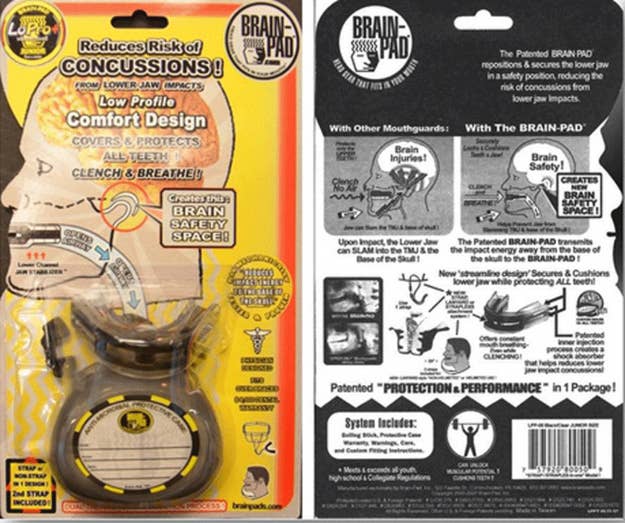
Until a few months ago, Brain Pad Inc. bragged that their mouth guards, which run from $10 to $30, would help prevent concussions and other internal head injuries from lower-jaw impacts. The Federal Trade Commission disagreed, reaching a settlement with Brain Pad requiring them to stop making those claims. "Mouthguards can help to shield a person’s teeth from being injured, and some can reduce impact to the lower jaw,” David Vladeck, Director of the FTC’s Bureau of Consumer Protection, said in a statement. “But it’s a big leap to say these devices can also reduce the risk of concussions. The scientific evidence to make that claim just isn’t adequate.”
Experts like Dustin Fink, an athletic trainer who writes a concussion blog, also shake their fingers at Mahercor (below).
Mahercore Mouth Guards
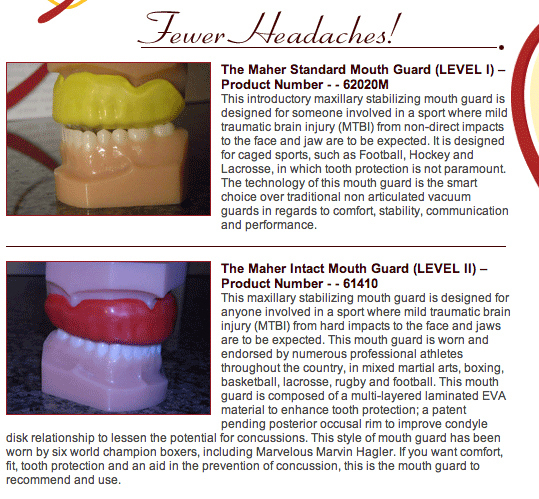
Fink has covered Mahercore products extensively on his blog . "I believe that the information about how there is no current evidence that any oral device can attenuate concussions or help with symptoms related to the injury of concussions," he wrote.
Brain Pad Protective Headband
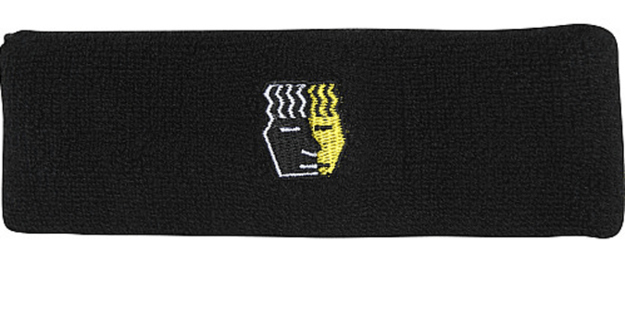
Brain Pad is also one of several companies to market headbands alleged to protect against the concussions soccer players suffer as a result of headers.
Unequal CRT
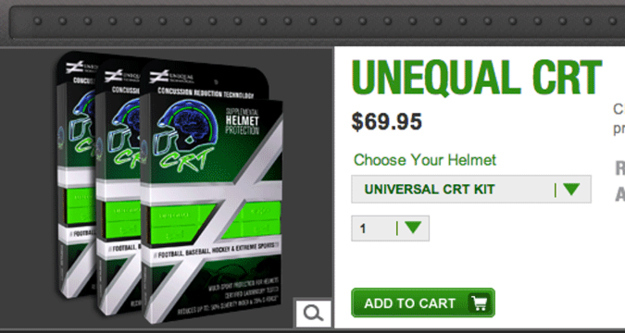
Unequal CRT claims to "reduce the possibility of injury to the head" with extra padding made of "a military grade, battle tested composite" similar to Kevlar that athletes can attach to helmets. They run $69.95 a package.
The company claims that according independent lab studies, new helmets fitted with Unequal CRT pads score as much as 53 percent lower on the Severity Index (more about what that is here) than typical helmets.
However, their materials also admit that "no helmet or pad including Unequal Products can prevent serious head, brain, body and/or neck injuries."
Wrote a company spokesperson: "While a number of doctors have endorsed use of our products and are currently prescribing CRT to patients who have suffered head injuries, you are correct in that no medical study has been completed that directly confirms Kevlar's effect in diminishing the severity of concussions."
NeuroImpact
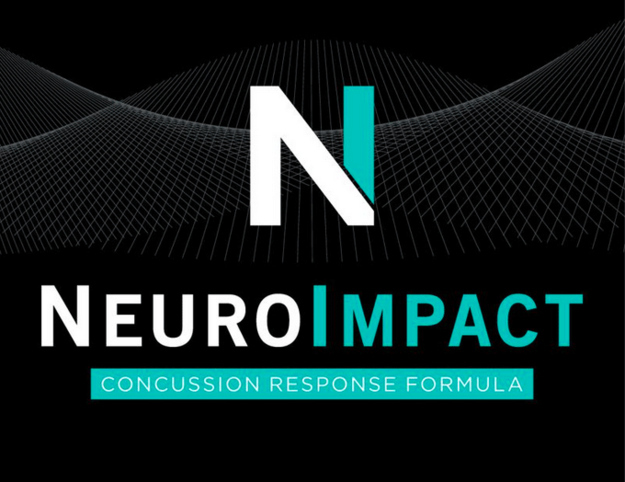
NeuroPruTect
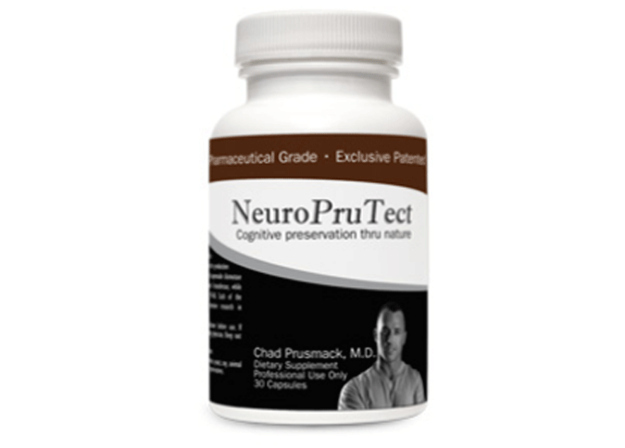
NeuroImpact and NeuroPruTect are supplements, made by Trinity Sports Group and PruTect Rx, respectively, that claim to help heal brains injured from concussions. The pills, according to the Food and Drug Administration, include a variety of vitamins: Vitamin C, Ginkgo and a bunch of anti-inflammatory ingredients. Scientifically speaking there's no proof they work at all. After NeuroImpact hit the markets late this summer (at $499 a for a week's worth of treatment according to The Daily), the FDA issued warning letters to NeuroImpact's parent company and other brain supplement-peddling vendors, warning them to change the promises in their advertisements. PruTect no longer advertises concussion prevention, but claims on its website to be developed by a former neurosurgical consultant to the Denver Broncos and says that it "supports brain health and cognitive function with ingredients backed by extensive research in peer-reviewed journals." NeuroImpact, meanwhile, labels itself as "Brain Recovery Support."
CORRECTION: Unequal CRT's product claims relate to the severity index, a measure of a helmet's impact reduction. They do not claim to reduce concussions.

